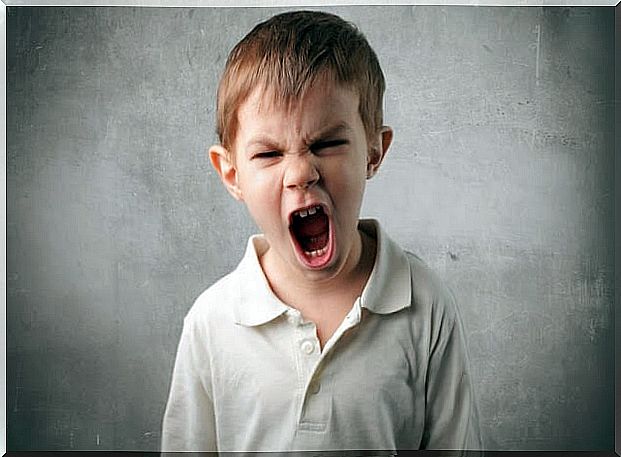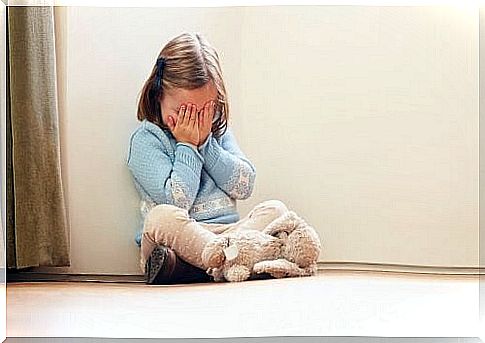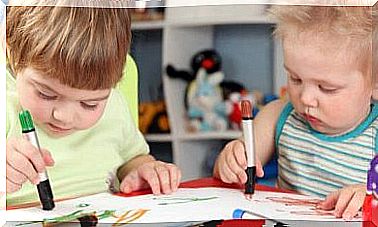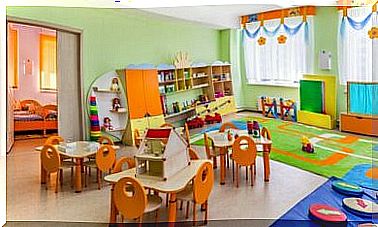8 Important Tips For Dealing With Your Child’s Outbursts Of Anger

It can be incredibly difficult to communicate with children when they are angry. When your child has an outburst of anger, it is often impossible to negotiate or reason with it. The child’s anger prevents him from hearing anything at all from what you have to say. So what can you do?
The most important thing to keep in mind
It is not uncommon for parents not to know how to react when their children get angry, much less how to talk to them. When a child has an outburst of anger, begins to cry, becomes aggressive or throws something, parents often lose control of their composure and become angry.
Instead of losing self-control, it is better to follow some important advice from experts in positive parenting.

1. Avoid poor treatment
When children get angry, many parents tend to get angry and shout at them. Sometimes they may even resort to threats and punishment. However, it risks damaging family ties.
Children are actually very intelligent, and are fully capable of understanding what you are trying to say to them.
So it is best to always try to instill values in your children about respect and to treat others with care.
Of course, this does not mean that children do not need any discipline at all. Teaching children boundaries is a fundamental part of their development.
However, some believe that physical punishment is part of parenting. For them, discipline means forcibly teaching them that something is wrong.
But it is far from beneficial for your child’s learning.
2. Care about your child’s feelings
At a young age, children carry many unprocessed emotions. No wonder they have not yet learned to deal with their emotions as most adults can.
Therefore, they express themselves through anger and frustration without restraint, and often by throwing themselves on the floor, kicking and screaming.
It is up to the child’s parents to set a good example. Then it is important to maintain control over their own emotions and not react impulsively. Otherwise, your reaction can have a negative impact on your child’s feelings, and even become a traumatic experience for the child.
3. Be a good role model
If you think that by constantly shouting at your children you are helping them to control their emotions, you are really wrong.
Parents must be the first to control their anger, because children do as their parents do and not as they say. To be a parent is to be a role model.
Your children are in the middle of their development. They observe everything their angry parents do. So remember that how you handle your own frustration leaves a strong impression on your children.
Instead of shouting, try to say, “You have to lower your voice, otherwise I do not understand what you are saying. Tell me what’s wrong instead of shouting, and we’ll solve it together. ”
By doing so, you calm down the situation and it will be easier for you to have a dialogue with your child.

4. Listen
If your child is trying to communicate to you what is bothering her, she may be trying to express herself by screaming and crying. It can create frustration.
Instead, keep calm, and position yourself so that you end up at eye level with your child. Then calmly ask her what is happening. It creates the right atmosphere for her to feel that you are listening and caring.
By reacting in this way, you calm down your child while offering solutions to the problem.
Do not ignore your child, nor respond sarcastically. Instead, show interest and consideration. It allows your child to react in a positive way.
5. Reduce the drama
None of what we say means that you should give in to your child’s every whim or contradiction. There must be a balance. If your child often gets upset about small things, you must try to help your child see things in the right perspective.
Do not encourage your child to dramatize small things.
6. Put an end to violence
If your child starts fighting or becomes completely uncontrollable, it will be very difficult to reason with him. In that case, it is best to grab your child’s arms and look him straight in the eye. Tell him you do not tolerate his behavior. You have to be very determined and convincing when you do that.
7. Take a deep breath
When your child does not do as you say, you may feel that you want to scream or react by getting angry. But the best thing you can do is back away, take a deep breath and come back calmer.
Positive discipline is recommended. For example: “Okay, you have chosen not to pick up your toys. That means you will not be able to play with them. ”
8. Speak calmly
Explaining calmly and calmly to your child that you understand what she is feeling is a good way to calm the mood. Tell your child that you also get angry and overwhelmed sometimes, but that you do not kick and scream for it.
It can help your child take a step back and reason.
Talking calmly with a child who is upset helps her calm down. You can also stroke her back, play with her hair or offer a hug, etc. to calm her down.
It may even be that your child only gets an outburst of anger because she wants you to show her affection.
Positive discipline is what family counseling experts think is best to help your child learn to reason.








